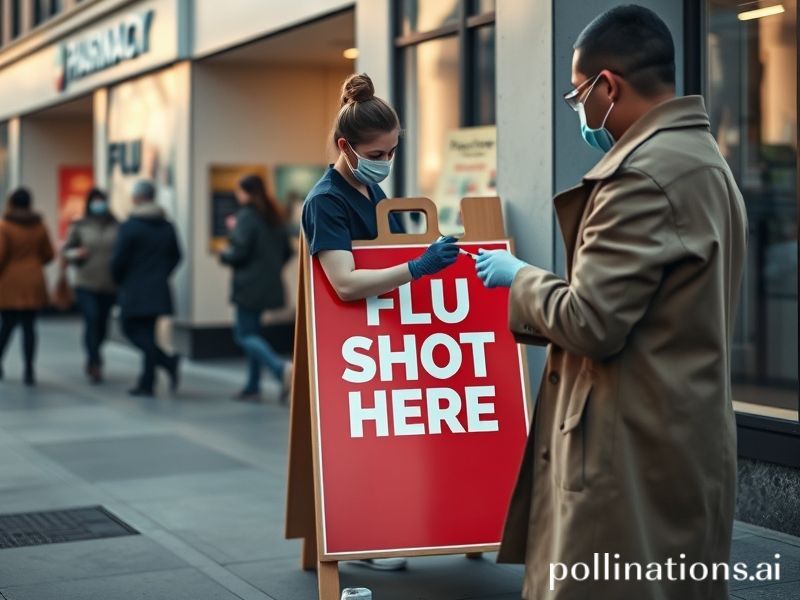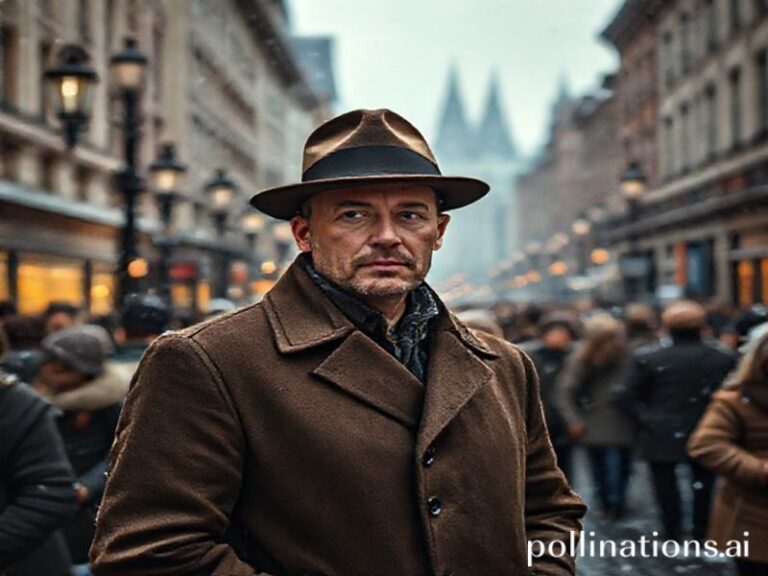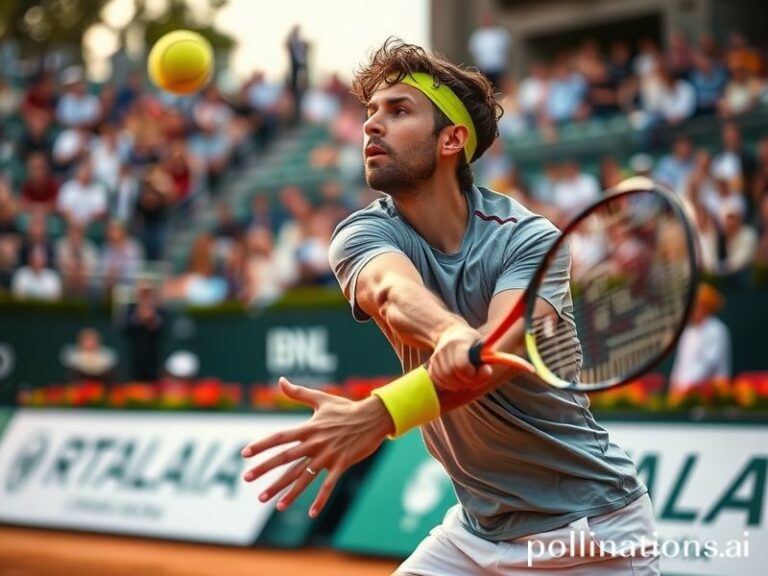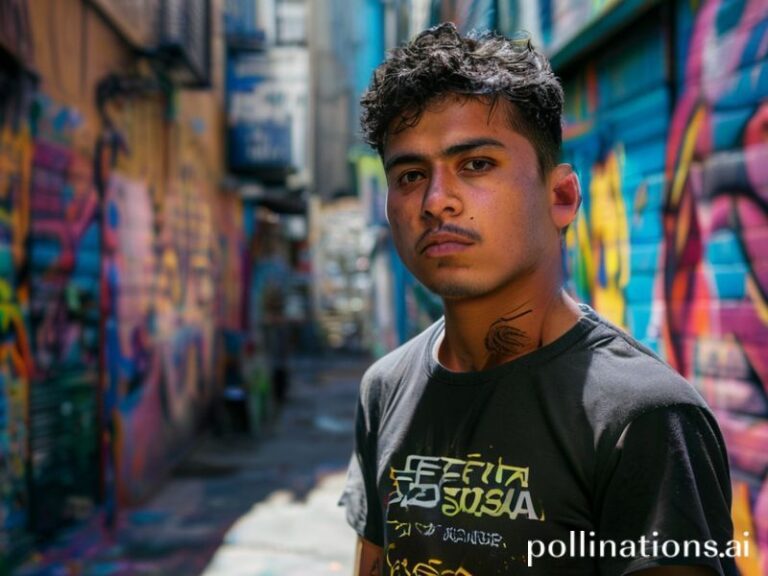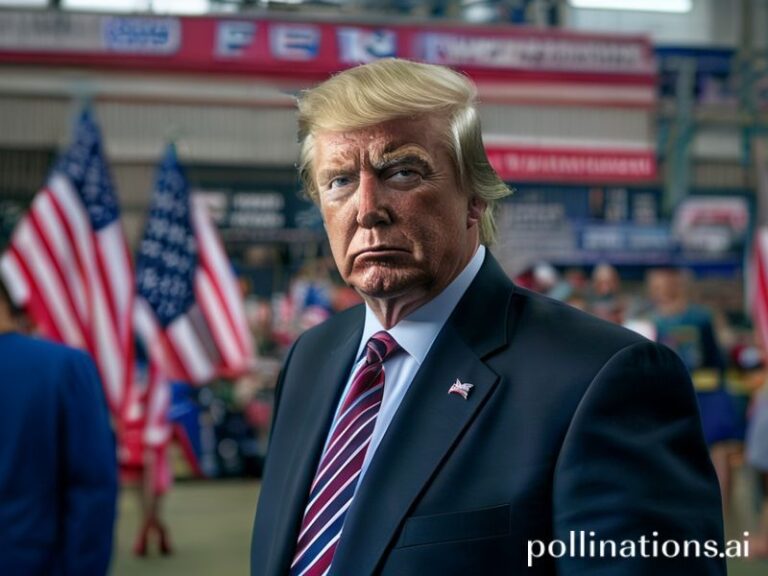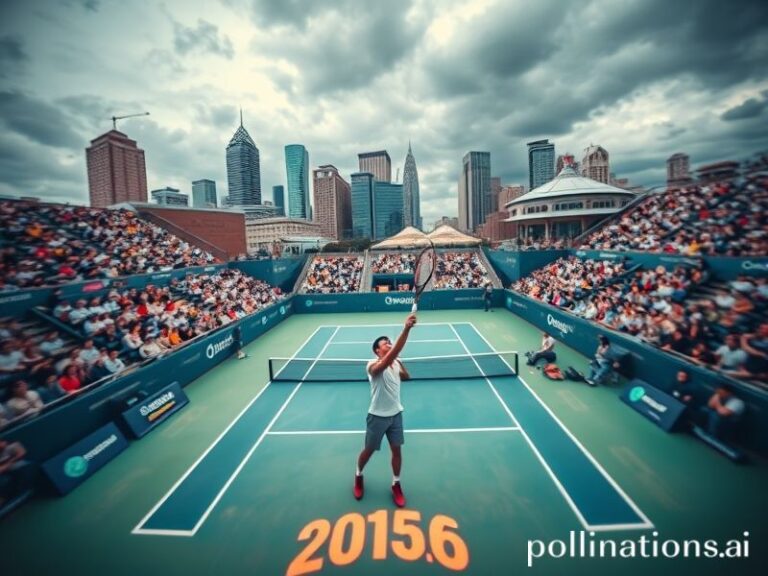Global Needlework: How the Flu Shot Became the World’s Most Democratic Ritual
Flu Shots Near Me, or How the World Learns to Queue for Survival
By Correspondent-in-Exile, Dave’s Locker Global Desk
If you type “flu shots near me” into a search bar in 2024, you will discover three universal truths: (1) the nearest clinic is either 200 meters or 200 kilometers away, depending on the quality of your passport; (2) every pharmacy has rebranded itself as a “wellness sanctuary” with scented candles and guilt; and (3) the queue, that great democratic leveller, now begins online at 3 a.m. local time and ends in a small room where a bored nurse calls you “champ” while stabbing you with the same nonchalance used to pop bubble wrap.
From an international vantage point—say, a rooftop bar in Istanbul where the muezzin competes with a Euro-pop playlist—the humble flu jab has become geopolitical theater. The northern hemisphere is hoarding quadrivalent vaccines like vintage wine, while the Global South politely pretends that “influenza-like illness” is just spicy asthma. Meanwhile, multinational pharmaceutical firms perform the annual miracle of turning last year’s virus into this year’s revenue, a feat of alchemy that would make medieval monks blush.
Consider the logistics. In Switzerland, you can book a drive-through shot between your fondue course and existential dread. In rural Kenya, the same vaccine arrives strapped to the back of a motorbike named “Hope,” piloted by a man who once delivered ivermectin to goats but is now humanity’s frontline. In Japan, the elderly receive their jabs in temples where monks chant to pacify both the virus and the stock market. In the United States, Walgreens offers a 10-percent discount on scented hand sanitizer if you agree to let an algorithm predict your next illness. (Spoiler: it’s stress.)
The ironies multiply like, well, viruses. Australia, having survived its own flu season in winter, now ships surplus doses to Europe—where citizens complain the vials are labeled upside-down. China produces half the world’s vaccines but still stages patriotic TikTok dances to convince grandmothers that the needle won’t steal their party loyalty. Russia markets a nasal-spray version called “Sputnik Sniff,” which sounds like a Cold War cocktail but apparently works, provided you also drink vodka and mistrust NATO.
Back in the queue—virtual or literal—humans reveal themselves. There’s the businessman who schedules his shot between red-eye flights, wearing a hazmat suit that screams “please rob me.” There’s the influencer live-streaming the micro-moment of injection, captioning it “Stay safe, stay sexy” while a single tear of sponsored saline rolls down her cheek. And, of course, the conspiracy theorist clutching a laminated manifesto about 5G and poultry, who still rolls up his sleeve because, as he mutters, “I’ve got a marathon to run.” (Side note: the marathon is in VR.)
Global health officials call this “vaccine confidence.” The rest of us call it the annual exercise in collective Stockholm Syndrome: we resent the needle, but we crave the absolution. One tiny puncture and we believe we can survive another winter of inflation, elections, and Elon Musk tweets. The flu shot is less a medical act than a secular communion wafer dipped in bureaucratic ethanol.
Yet beneath the cynicism lies a fragile miracle. Each vial is a tiny treaty between science and chaos, negotiated in labs where people still wear taped-together glasses and dream of eradicating suffering before the grant money runs out. For every smug headline about “post-pandemic life,” there’s a refrigerated truck idling outside a village clinic, its engine coughing harder than the patients. The shot you get in a strip-mall CVS is chemically identical to the one administered under a baobab tree; only the playlist changes.
So, dear reader, when you next Google “flu shots near me,” remember you’re participating in the world’s most genteel arms race: humanity versus a protein shell with imposter syndrome. Whether you receive your jab in a marble lobby or a repurposed bus stop, raise your Band-Aid like a battle ribbon. We may still be doomed, but at least we’re doomed together, one deltoid at a time.

